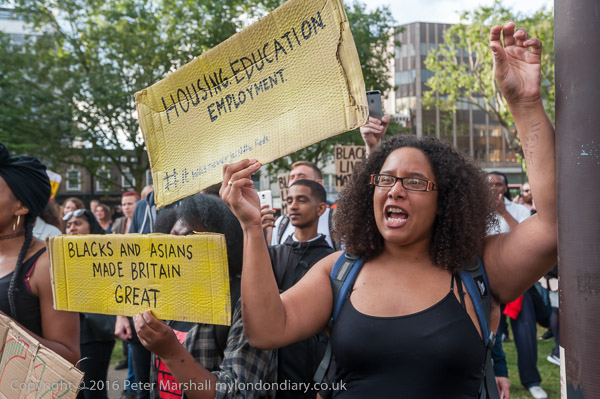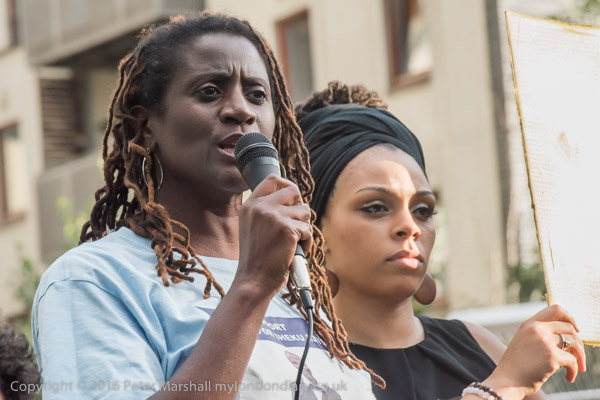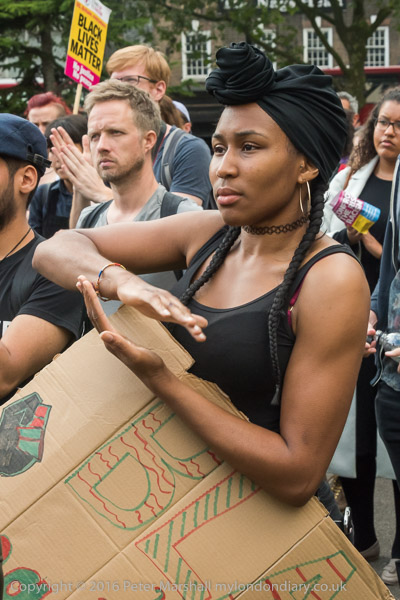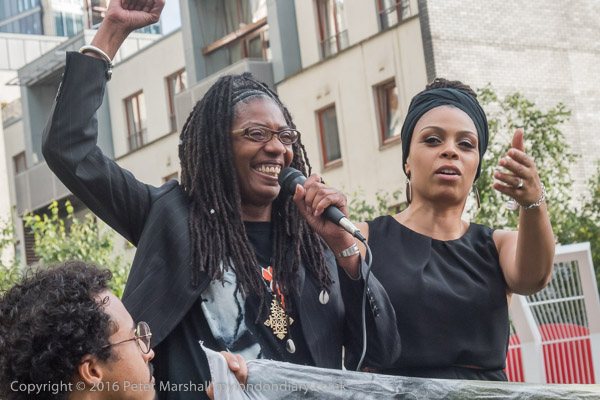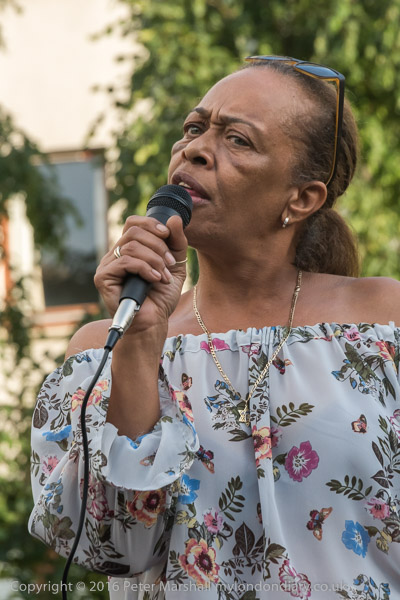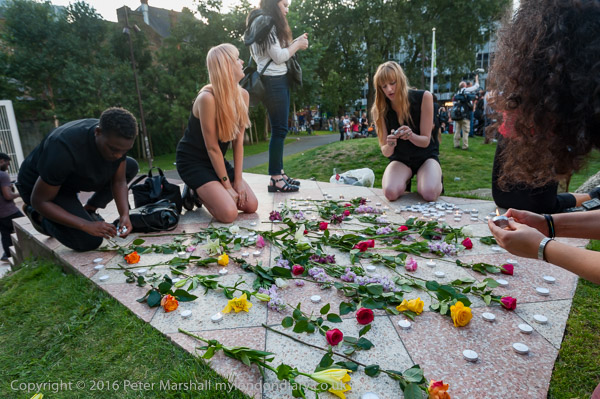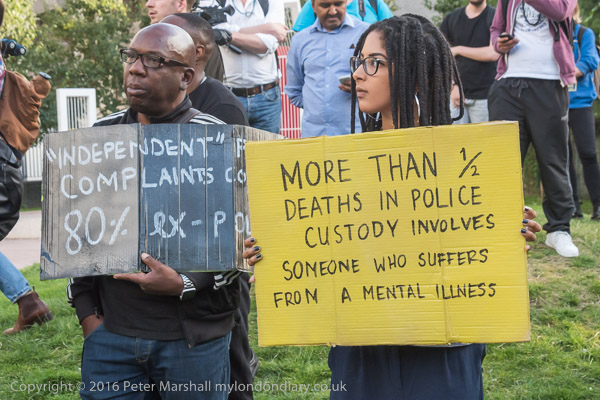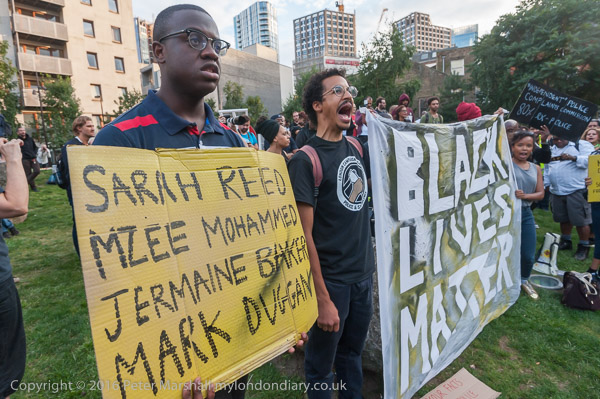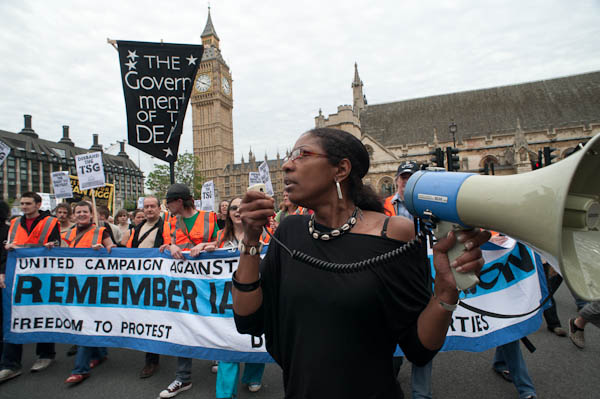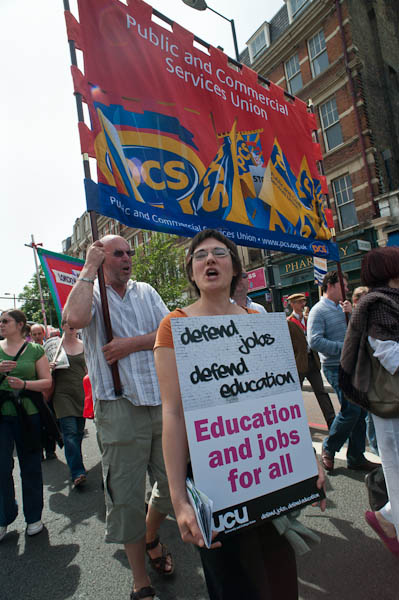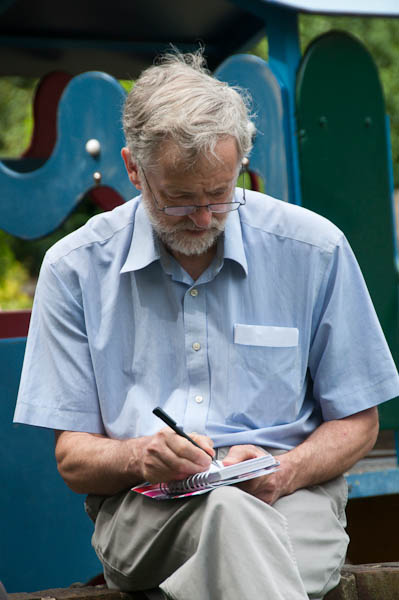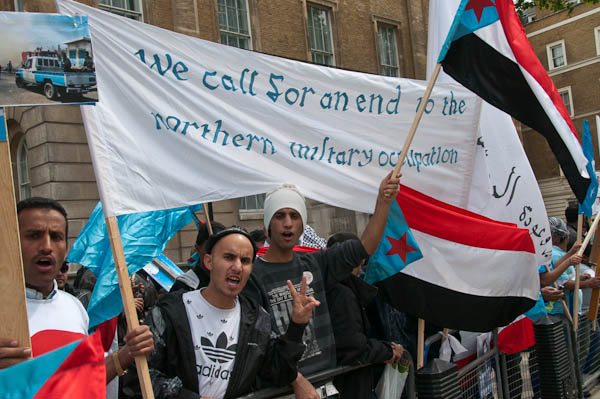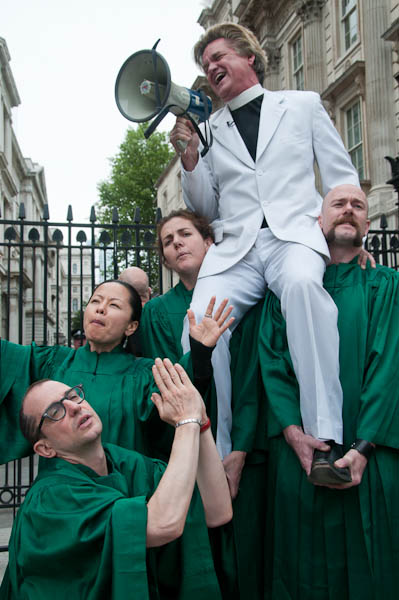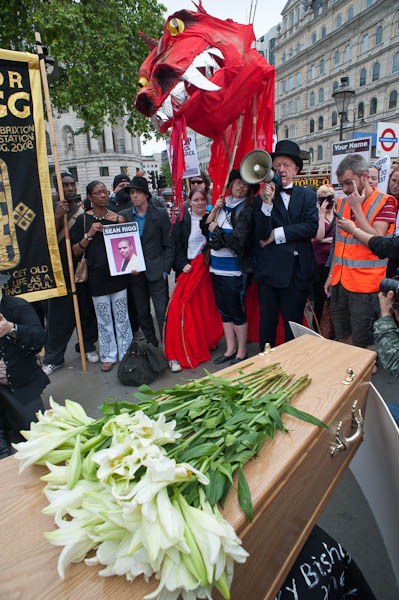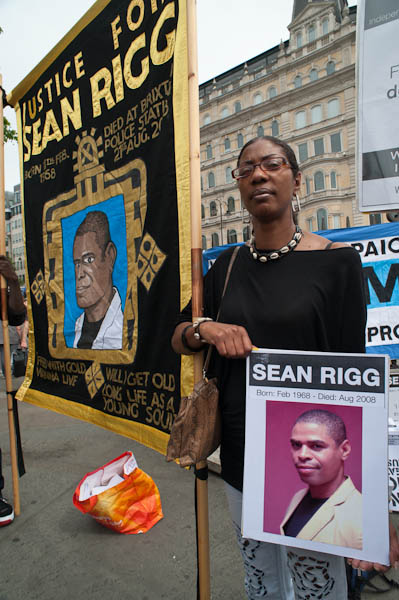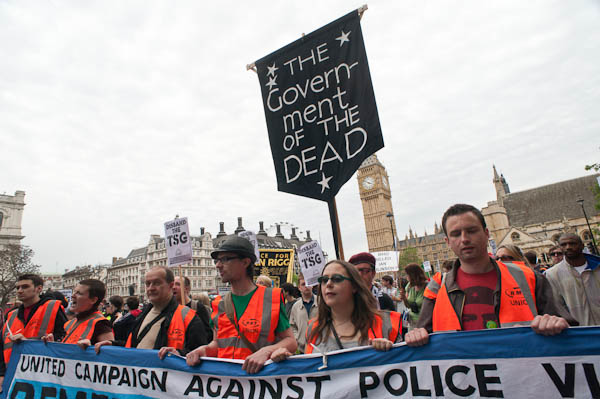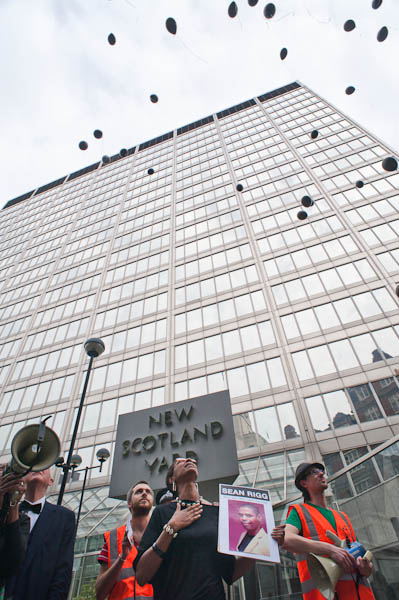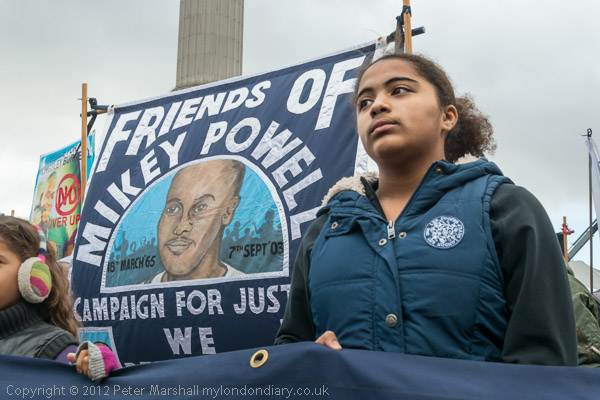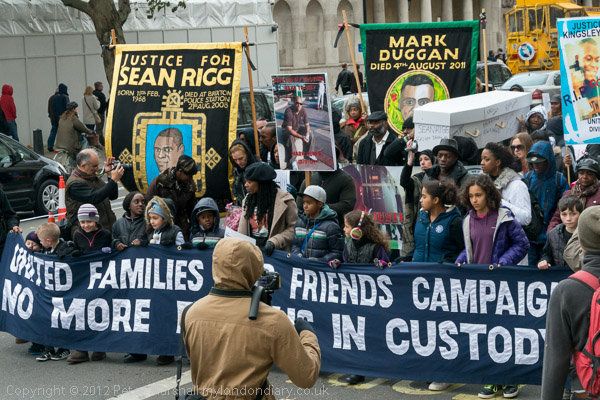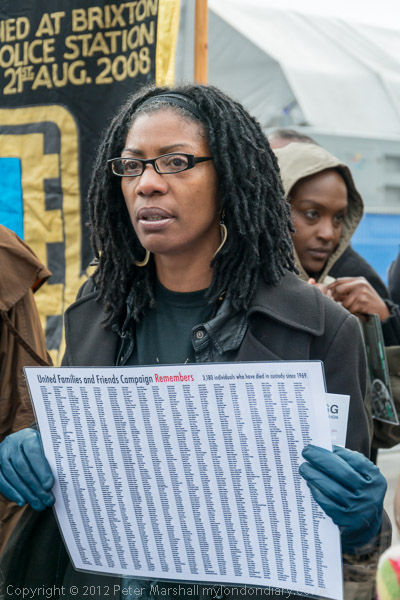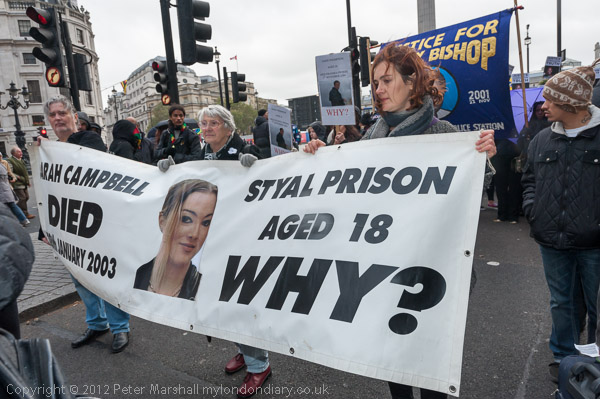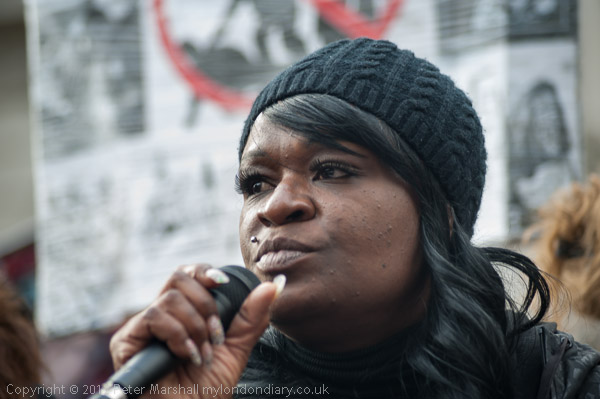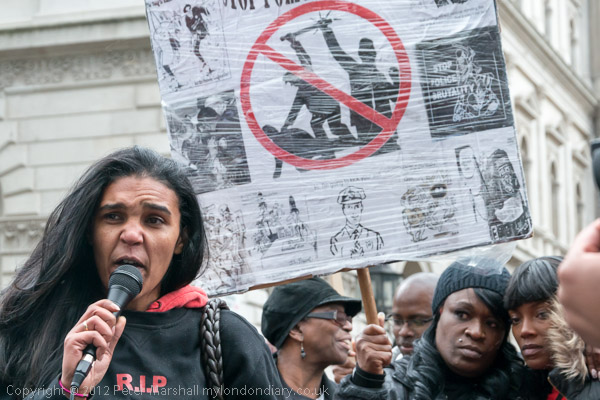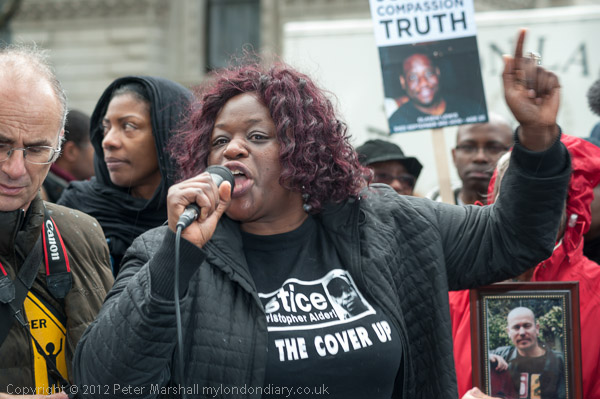Today at noon in London, the the United Families & Friends Campaign (UFFC), a coalition of those affected by deaths in police, prison and psychiatric custody, is holding its annual march from Trafalgar Square along Whitehall to a rally opposite Downing St as it has on the last Saturday in October since 1999. In 2010 the march was also on 30th October and I published a lengthy post about it with many photographs on My London Diary. Here is the text in full (with some minor corrections) and a few of the pictures.
United Friends & Families March
Trafalgar Square to Downing St, London. Saturday 30 Oct 2010
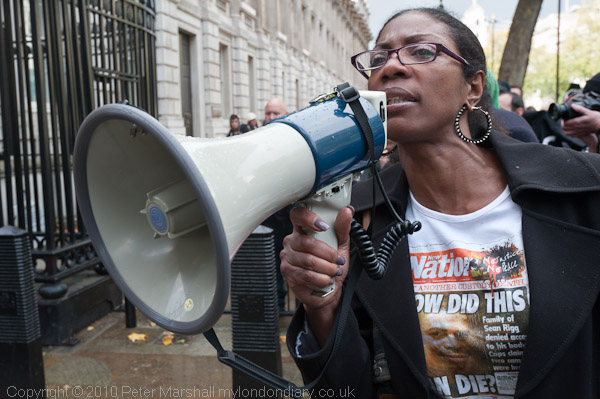
more pictures
The United Friends and Families of those who have died in suspicious circumstances in police custody, prisons and secure mental institutions marched slowly in silence down Whitehall to Downing St, where police refused to allow them to deliver a letter to the Prime Minister, David Cameron.
It’s impossible to be sure how many of the suspicious deaths in police custody, prisons and secure mental institutions (and there are around 200 a year) have been as a result of lack of care, the use of excessive force and brutality, but certainly the answer is far too many.
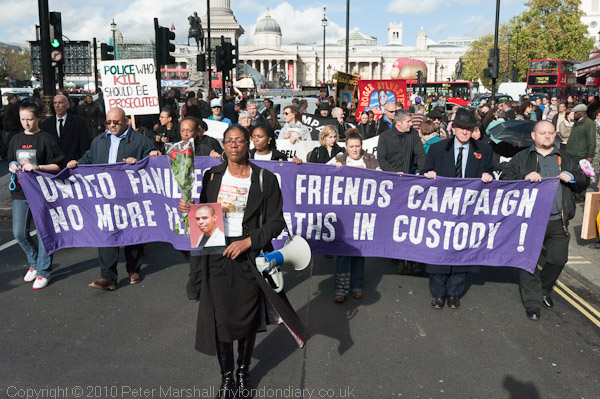
Since 1999, the ‘United Friends and Families’ of some of those who have died have held an annual slow silent funeral march from Trafalgar Square down Whitehall to Downing St. It attracted particular attention in 2008 when the mother and other family members of Jean Charles de Menezes were among those taking part. This year’s event was rather smaller, and received little attention from the mainstream media.
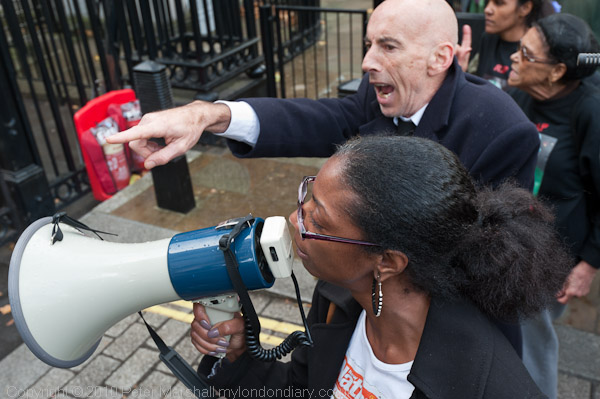
A number of family members spoke with great feeling opposite Downing St, and then the group, by now around a hundred strong, moved across the road to fix flowers to the gates and attempt to deliver a letter to Prime Minister David Cameron. It seemed an unnecessary and pointless snub that the police refused to take the letter and that nobody from No 10 was apparently prepared to come and receive it.
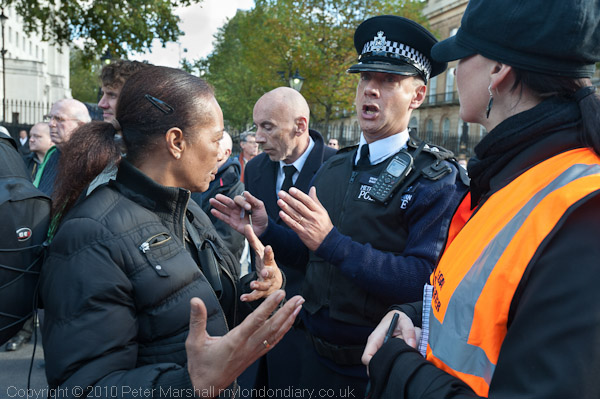
Earlier there had been an argument with the police who had objected to the rally occupying one of the two southbound lanes of Whitehall, but was allowed to go ahead by the officer in charge after those present had refused to move. In previous years the police have usually seemed anxious to avoid confrontation, although in 2008 they insisted on searching all the bouquets before allowing them to be laid on the gates of Downing St.
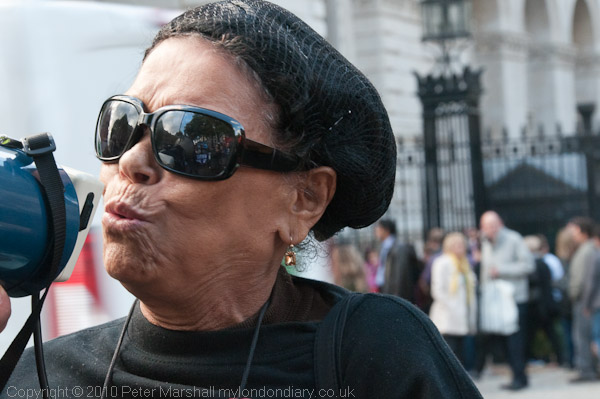
Speakers at the rally opposite Downing St included Stephanie, the twin sister of Leon Patterson, Rupert Sylvester, the father of Roger Sylvester, Ricky Bishop’s sister Rhonda and mother Doreen, Samantha, sister of Jason McPherson and his grandmother, Susan Alexander, the mother of Azelle Rodney, and finally the two sisters of Sean Rigg.
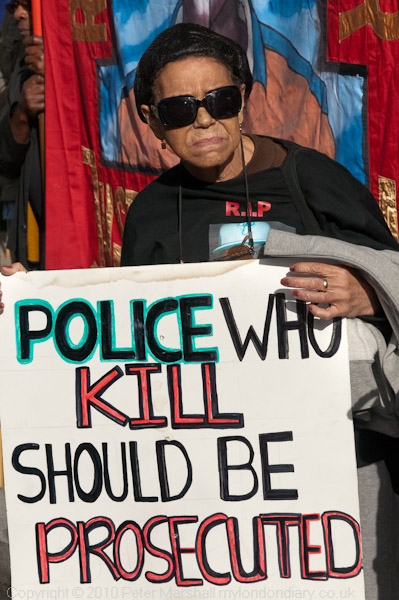
What the families want is simple. Justice. And to know the truth about what happened. What emerged again and again was a shameful history of delay, evasion and covering up by the police, with the collusion of the IPCC, the Crown Prosecution Service and even at times judges, working together to ensure that justice fails to be done. The press have been fed lies – as in the de Menezes case, security cameras have suddenly been found not to have been working, CCTV tapes have been lost or doctored, officers involved have not been questioned until many months after the events, witness statements have been dismissed as ‘unreliable’. Deliberate delays are used as a tactic to prevent the truth coming out, and these also have allowed officers involved to collude in their cover-ups.
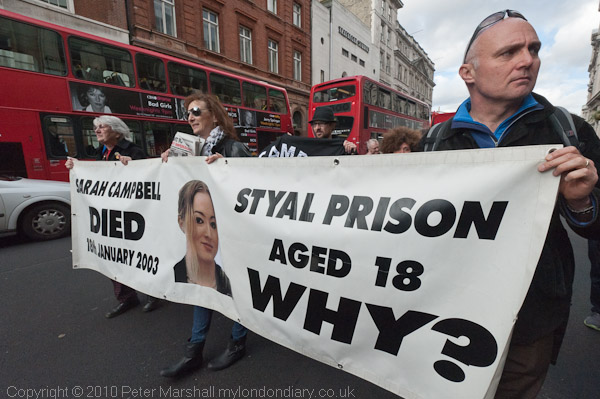
Overwhelmingly the victims in these cases are black, but one of the banners on the march reminded us that it affects the whole of our community, with a banner asking why 18 year old Sarah Campbell died in Styal Prison in 2003. Many of us present remembered and sadly miss her mother, Pauline Campbell; after her daughter’s tragic death she devoted herself single-mindedly to campaigning for justice, not just for Sarah but for other victims and to improve the system. Eventually she forced an admission from the authorities that their lack of care had caused Sarah’s death, but she became another victim of injustice when she committed suicide on her daughters grave.
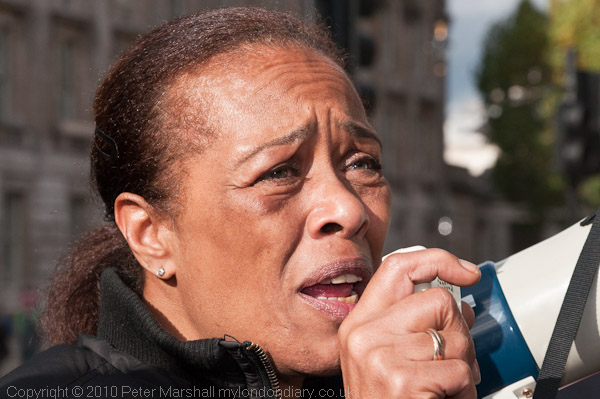
Leon Patterson was arrested in Stockport in 1992 and kept in a police cell for some days despite being in need of hospital treatment. He was found dead in his cell with a fractured skull and severe injuries, his blood covering the walls of the cell and his genitals mutilated, and in such a bad state that she failed to recognise him. The family challenged the initial inquest verdict which found his injuries to be self-inflicted, but there was no legal aid available for them. Fortunately the charity INQUEST supported them and a second inquest in April 1993 returned a verdict of unlawful killing, although this was quashed on appeal by the police on the grounds that the coroner had misdirected the jury on the law.
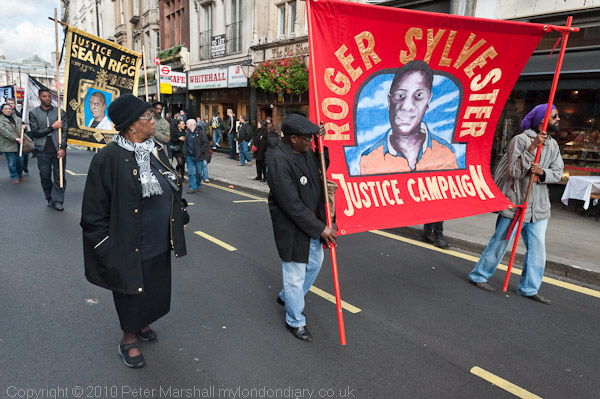
Roger Sylvester died in 1999 after being arrested by the Met. An inquest jury in October 2003 returned a verdict of unlawful killing, but the verdict was later quashed in the High Court, because the judge claimed the coroner’s summing up had confused the jury. The judge refused to order another inquest and said that no jury in a criminal case would be likely to convict any of the officers concerned of manslaughter.
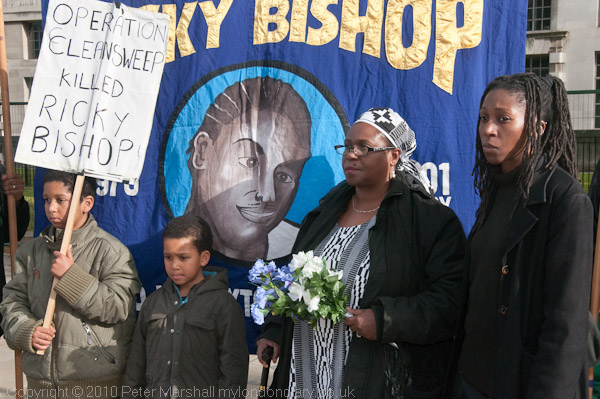
Ricky Bishop was stopped, arrested and taken to Brixton police station on 22 Nov 2001, where he was assaulted and brutalised by police officers, leading to a heart attack. After that the police called a paramedic and he was taken to hospital and died. The family say that the police withheld vital evidence from the inquest and that the jury were not given a proper choice of verdicts at the inquest.
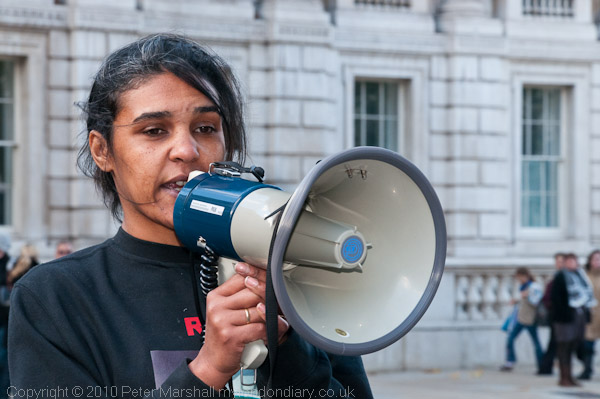
Jason McPherson died in hospital after being taken there from Notting Hill Police station after having been arrested on suspicion of drug offences on 18 Jan 2007. Police believed he had a wrap of cocaine in his mouth and had used considerable and arguably excessive force on his head and chest to try to get him to open his mouth. A jury at the inquest in January 2010 came to a unanimous ‘narrative verdict’, saying that the procedures were not properly implemented and that “it did not appear Jason was given the opportunity to remove the drugs voluntarily through talking down (tactical communication).”
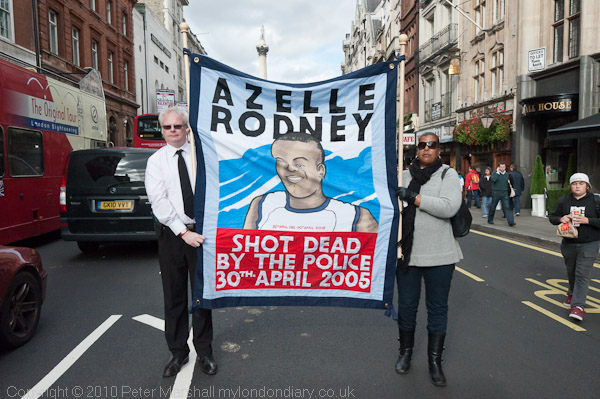
Azelle Rodney was killed by police in April 2005 after a car in which he was travelling was rammed and stopped by the Met in Barnet. Rodney was not armed, although the officer who fired the shots at close range was sure he was. Various misleading statements from police sources were widely published by the press. An inquiry into the case opened formally earlier this month and there is to be a hearing in the Royal Courts of Justice starting next week.
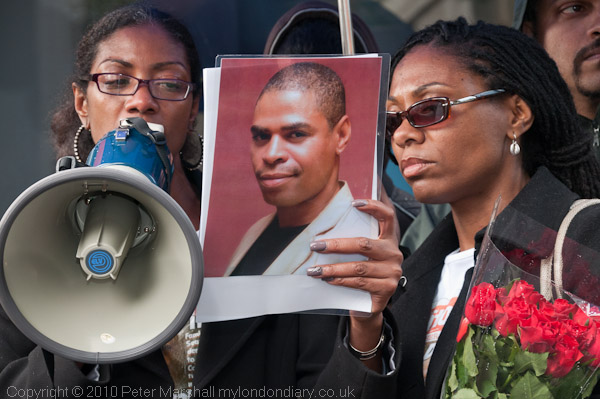
Marcia Rigg-Samuel, sister of Sean Rigg, who went into Brixton Police station in August 2008 a physically healthy man but was dead a short time later, killed by the actions of a small group of officers, led the procession down Whitehall from Trafalgar Square. She stood beside her sister, Samantha Rigg-David, the last of the families to speak, and then read the letter from the families to Prime Minister David Cameron. The inquest on Sean Rigg, adjourned in 2008, is not now expected until 2012.
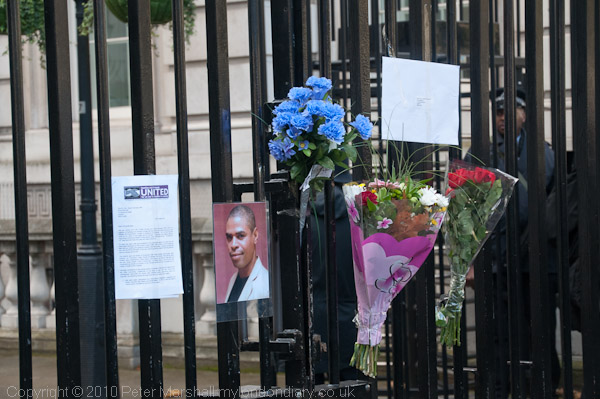
The families then moved across the road to the gates to Downing Street, demanding that police open them so they could deliver their letter. Police refused, and a small group of armed police joined the armed officers already present. After considerable amount of angry shouting as the police continued to refuse to allow access or even to take in the letter – a few of the group were allowed to sellotape the flowers, a photo of Sean Rigg and the letter to the gates. The noisy demonstration at the gates was still continuing when I left.
more pictures
